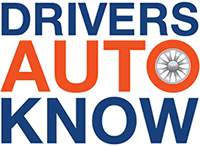Price shopping has a place. At the grocery store, you can buy a premium brand of spaghetti noodles, or a generic variety. Is there any difference? Probably not a huge one. The only ingredients are water, flour, eggs, and salt. How do you mess that up?
In other cases, price shopping isn’t smart. You could buy a cheap pair of shoes at Walmart… but how long do you think they’ll last? Maybe a year if you’re lucky. You might save $50 now, but you’ll have to buy another soon.
You can apply the same reasoning to auto repair. I charge $100 per hour. Another shop charges $50 per hour. Which one is a better deal? That’s a trick question. It’s not possible to make that decision based on labor rate alone. Confused? Okay, I’ll show you what I mean.
Every auto shop isn’t created equally. My mechanics and technicians have at least two industry-recognized certifications. We have mandatory training twice a year. I have invested a huge amount of capital in the best tools and technology money can buy. We pride ourselves on professionalism and efficiency.
Remember: my shop charges $100 per hour for labor. A driver comes in with a car problem. I correctly diagnosis the issue and complete the repair in 30 minutes. Total: $50. For the sake of example, let’s say the driver was turned off by my rate. “That’s way too expensive, I will just go to Jiffy Lube.”
So they do… and the repair takes two hours (labor rate: $50/hr), because their mechanics weren’t trained properly. Total: $100. Let me ask the same question. Which one is a better deal? Now the answer is obvious. Forget the hourly cost. Instead, hire mechanics and technicians based on their expertise and efficiency.
If you’re buying dry pasta, no big deal. Please buy the cheapest option available. They’re all the same. If you’re asking a professional to repair your automobile — one of the biggest investments, you’ll ever make — price shop at your own risk. Has price shopping ever backfired on you? Tell me about it in the comments.

